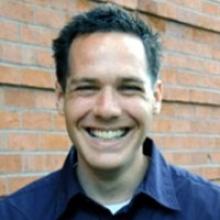Think Again: It’s Getting Harder and Harder to Attract Talent Into the Teaching Profession. Nope, That’s Not What Evidence Suggests.
Buried in a recent New York Times article on the major gender imbalance in the teacher workforce is the notion that adopting academic standards and increasing pressure on teachers has made it more difficult to attract academically talented people into teaching. Meanwhile, American Federation of Teachers president Randi Weingarten goes on record saying that teaching is “harder now than ever before, with less and less respect.” The view that teaching’s curb appeal isn’t what it used to be is widely shared, but is it right?
 It is certainly true that teaching is a difficult job. And there is indeed academic evidence confirming that the profession faced increased difficulties drawing top academic talent (judged, for instance, by SAT scores) into public schools since the 1960s, when more occupations opened up to female and minority college graduates. But a recently published study I did with Joe Walch finds that the situation has changed dramatically since the 1990s. Recent college graduates with median and high (90th percentile) SAT scores were more likely to enter the teaching profession than other occupations in 2008 than in 2000 and 1993. In fact, the average SAT score of college graduates who went on to become teachers in 2008 was greater than that of college graduates who opted for other occupations, reversing a long-term trend.
It is certainly true that teaching is a difficult job. And there is indeed academic evidence confirming that the profession faced increased difficulties drawing top academic talent (judged, for instance, by SAT scores) into public schools since the 1960s, when more occupations opened up to female and minority college graduates. But a recently published study I did with Joe Walch finds that the situation has changed dramatically since the 1990s. Recent college graduates with median and high (90th percentile) SAT scores were more likely to enter the teaching profession than other occupations in 2008 than in 2000 and 1993. In fact, the average SAT score of college graduates who went on to become teachers in 2008 was greater than that of college graduates who opted for other occupations, reversing a long-term trend.
Potential explanations for the shift in the academic caliber of new teachers abound. Since the late 1990s, both federal and state policies have emphasized recruiting smart people into teaching. Also, teaching recruits now come to the profession from many different pathways—including such programs as Teach For America and the Teaching Fellows Program—that recruit individuals with strong academic credentials. Perhaps most important, the significant economic slow down may have made teaching, historically a profession with high job security, relatively more desirable.
There is little doubt that raising salaries and improving working conditions might make teaching an even more appealing profession. But discussions and debates about policies that might affect the teaching profession should be grounded in facts about today’s teacher workforce. When it comes to the talent that is entering teaching, the latest evidence is often at odds with widely held impressions.
--------
Think Again is a series of insights from AIR experts challenging commonly held perceptions on a range of social and educational topics.
